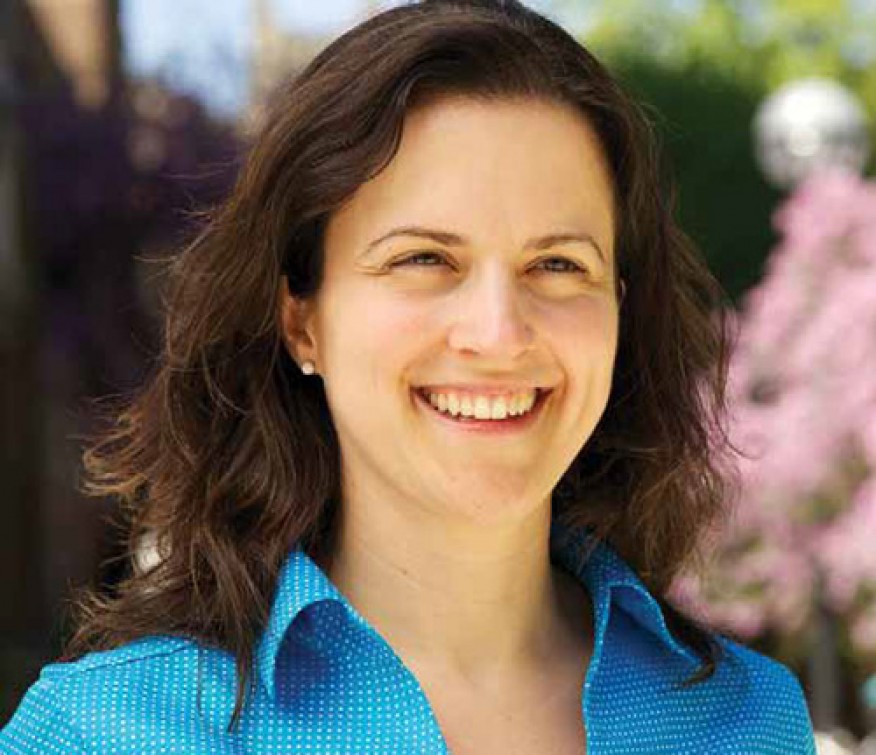More than 20 years ago, Nancy Brennan was an undergrad at the University of Michigan with a lot of curiosity and enthusiasm, but not much direction. Several years later, as a successful human resources executive, she discovered how much she enjoyed connecting people to resources to sustain or improve their lives. It was the beginning of her path toward becoming a social worker.
“I was very affected seeing people struggle, but also inspired by witnessing their resolve and resilience,” Brennan said. “People can become empowered when obstacles to access and opportunity are removed.”
With a job in business, Brennan felt there was more emphasis on the bottom line than there was on employee satisfaction, engagement and retention.
“I was essentially doing social work in my HR job,” Brennan said, “and I knew I wanted to transition to that full-time. There is such a need for social workers—I am exactly where I’m supposed to be.”
Brennan has loved all of her classes. She wasn’t sure what she wanted to do for her field placement, but she was acutely aware that as a 16-month student, she had one shot. She hoped for a placement, which would provide a broad and rich experience, great supervision and an opportunity to cultivate clinical skills.
She feels as though she has gotten all that and more at a newly offered placement at the University of Michigan Health System’s Comprehensive Gender Services Program (UMHS-CGSP), a multidisciplinary program providing a variety of services for gender-variant individuals. UMHS-CGSP is the only university-based gender services program in the country. It belongs to the World Professional Association for Transgender Health (WPATH) and follows the WPATH Standards of Care.
I am exactly where I’m supposed to be.
—Nancy Brennan
“Gender is one’s deepest sense of identity and self,” Brennan explained. “Whereas sexuality is external— relating to whom one is attracted—gender is an internal experience. When your sense of self doesn’t match how the world relates to you, there can be significant distress. Among other challenges, there is stigma, access to services can be denied, relationships are often difficult, the workplace can be unsafe; it can be oppressive and disenfranchising. This is a social justice issue, indeed.”
At the beginning of her field placement, Brennan was concerned about her credibility with her clients.
“I knew I hadn’t had their experience, but I was hoping I could validate and support them nonetheless,” Brennan explained.
Her concerns were quickly put to rest, and now she works closely with the medical and mental health professionals who comprise the program. She says her growth, both clinically and personally, has been exponential. In addition to providing individual, couple and family therapy, she also co-facilitates two support groups, one for parents of gender-variant children and one for partners and spouses of gender variant clients.
According to Brennan, the program is growing. Last year more than 100 new patients enrolled; the pace of enrollment this year is even greater.
“Even though our program is growing, the transgender population is still stigmatized,” Brennan said. “While each person’s concept of transition is uniquely defined by them, it doesn’t happen in a vacuum. It impacts every facet of a person’s life and we want to be able to support their whole experience.”
Brennan emphasizes that UMHS-CGSP is very much a partnership across disciplines.
“We rely on our primary care doctors and surgeons as much as they rely on us,” she explained. “Through working as a member of a team, I have been able to gain skills that can translate to many potential employment settings down the road.”
As for diversity and social justice, her field placement has delivered a rich opportunity to practice social work.
“All of my patients are uninsured or underinsured,” Brennan said. “Without our program, many of them may not have been able to access the services they seek.”
Brennan completes her MSW in December 2013. She aspires to a fellowship here at U-M to obtain additional clinical training.
